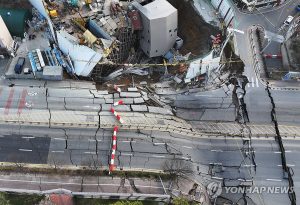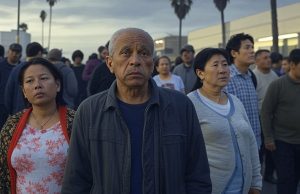At the bus stop at the intersection of Wilshire and Hobart, a homeless woman has made her home for the past three years. Her days are spent collecting trash, and when anyone approaches, her sharp screams echo through the streets of this busy Koreatown corridor.
Neglected Mental Health Issues
The woman exhibits clear signs of mental health issues. She responds with intense reactions when offered help, making communication impossible. This represents a typical mental health crisis seen among the homeless population, where prolonged homelessness leads to a complex mix of resignation, frustration, and anger.
A System’s Failure
Despite Los Angeles City investing hundreds of millions of dollars in addressing homelessness, meaningful help fails to reach those suffering from mental illness like this woman. The homeless crisis in Koreatown continues to worsen year by year, with around 20 tents concentrated near 7th Street and Hobart alone.
Barriers to Solutions
Helping homeless individuals with mental illness requires more than just providing housing. A comprehensive approach including mental health treatment, medication management, and ongoing case management is necessary. However, the current system struggles to provide such integrated support services.
Urgent Need for Action
Winter’s cold weather can be lethal for those living on the streets. For homeless individuals who refuse help due to mental illness, intervention from specialized outreach teams is crucial. Only an integrated approach involving mental health professionals and social workers can protect their lives and open a path back to human dignity.
The situation highlights a growing crisis at the intersection of homelessness and mental health in one of Los Angeles’s most vibrant neighborhoods. As temperatures drop and conditions worsen, the need for immediate, comprehensive action becomes increasingly urgent.

















































 ‘날벼락’ 이민자 단속
‘날벼락’ 이민자 단속


































